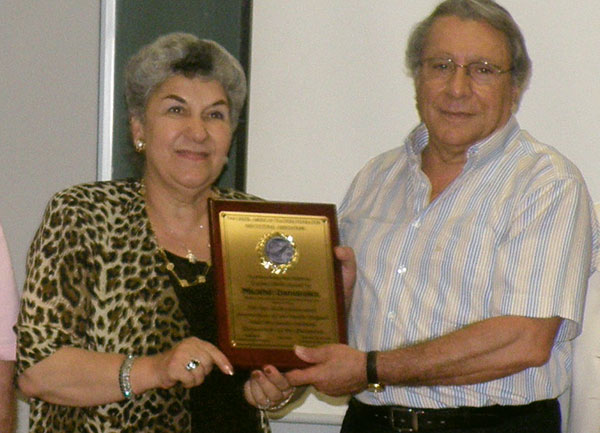Supporting the «ambassadors of Greek civilization» who are the Greeks living abroad, stands the professor of Cross-curricular Education in the Department of Education of Primary Education in the University of Crete and Director of the Laboratory of «Cross-Curricular and Immigration studies» (Ε.ΔΙΑ.Μ.ΜΕ.) Mr. Michalis Damanakis.
Cross-Curricular Education –he underlines in an interview to «In-On» magazine – presupposes and aims at the co-education of the citizens of every country along with the foreigners. Depending on co-education «different views and notions», meet, interact and each part is enriched.
Cross-Curricular Education –he continued- came to light during the last decades of the 20th century in Europe, following the attempts of the theoretical scientists on education so as to give answers to questions that arise due to the transform of modern societies to «multi-cultural».
Ε.ΔΙΑ.Μ.ΜΕ to which he is the director since 1995 was enacted by his proposal in order to deal with issues on educating Greek people who live abroad, have returned to their home-country or foreigners who live in Greece on a research and postgraduate level.
From 1988 to 1993, Mr. Damanakis was the president of the Department of Education in the University of Ioannina, from 1995 to 1997 he was the president of the Department of Education in the University of Crete, from 1996 to 1999 he was the president of Π.Ε.Κ. in Herakleion, Crete, while in the period from 1999 to 2004 he served as a deputy dean of Academic Affairs and Personnel in the University of Crete.
It has to be noted –the professor said – that in Greece we are still in the beginning concerning not only educational practice and policy but also the relative theories regarding cross-curricular education. The countries of Central and North Europe have more experience on educational matters and more valid scientific knowledge; however they have not consolidated cross-curricular education yet on an institutional basis.
Greece -he clarified- has a history of 23 years as a full partner of the European Union (Ε.U) and, therefore many of the European rules apply to the Greek structures. The important parameter concerning the evolution that occurred in Greece however is the transformation from an immigrant country to a country that hosts immigrants. He, also, underlined that «The presence of almost one million foreigners in Greece is equivalent to nearly 10% of the population, a fact that dramatically changes the demographic synthesis of the country. On the other hand, the fact that nearly 11% of the school population in primary education come from more than 50 different countries, has forced Greek governments to take certain educational measures, which are under the general term «cross-curricular education». Those measures were mainly taken during the 1990s, resulting in adding to the national and European dimension the cross-curricular one».
Undoubtedly, as he mentioned Europe of today is becoming more and more multicultural, multilingual and multi-religious, not only due to the cultural and linguistic diversities of its people, but also due to the massive coming of immigrants from countries other than European. It is, therefore, usual to visualize the interaction of civilizations not only of European origins, an issue that will play an important role in the future.
Since 1997 until today Mr. Damanakis has focused his research on the Greek people who live abroad and especially on their Greek-speaking education, making the University of Crete a point of reference generally for the Greek people and especially for the Cretans. It has to be noted that the secretariat and the website of the International Council of the Cretans are hosted in ΕΔΙΑΜΜΕ.
REASEARCHER OF CROSS-CURICULAR EDUCATION

